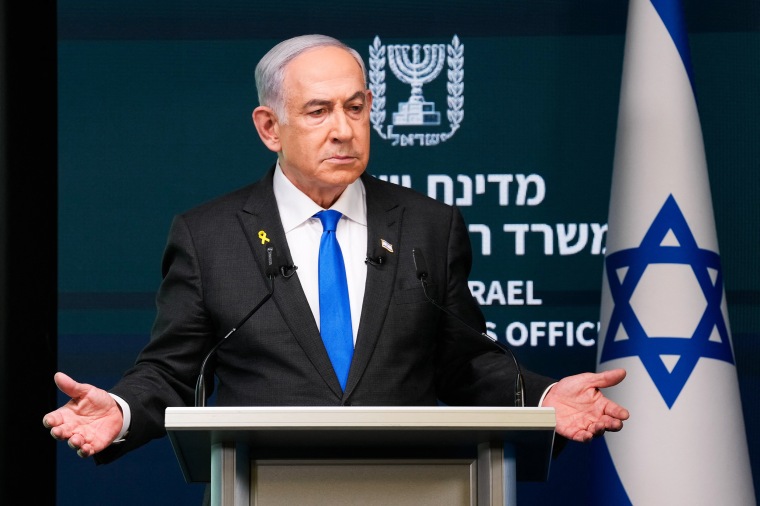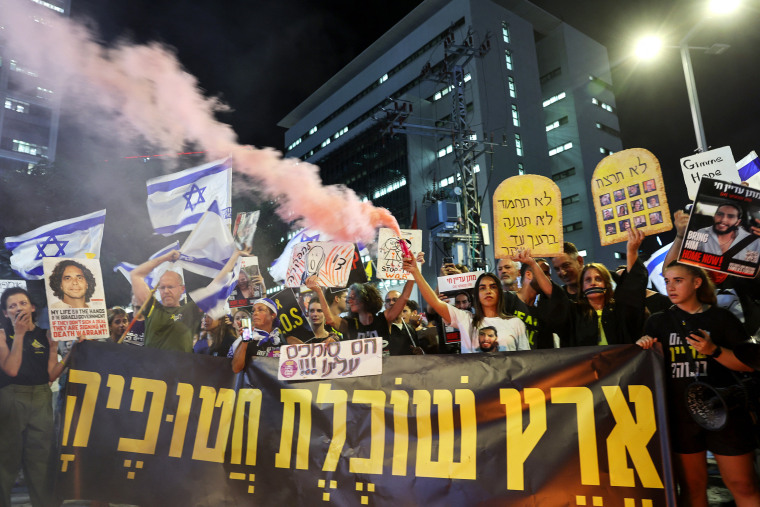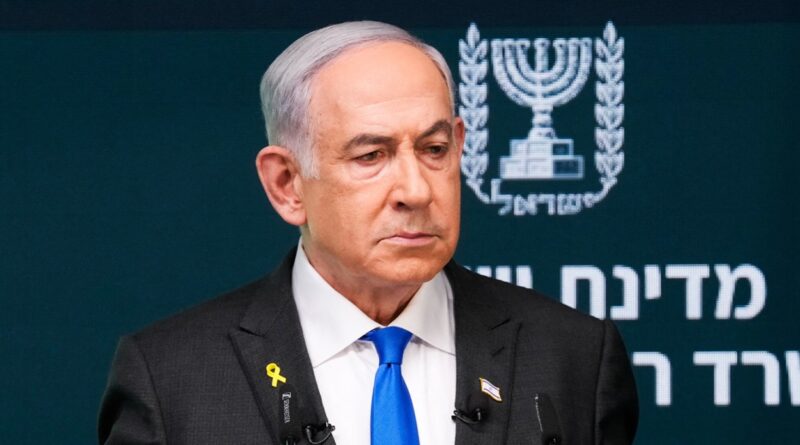Netanyahu rejects protests over Philadelphi Corridor hostage deal demand
Israeli Prime Minister Benjamin Netanyahu was assailed Wednesday by angry protests from hostage families, colleagues-turned-critics and leaders across the Middle East.
Netanyahu’s insistence on a controversial demand in cease-fire talks has defied the eruption of anger in the wake of the killings of 6 hostages in Hamas captivity, threatening to derail hopes that their deaths might at least force progress in stalled negotiations.
The Israeli leader’s public rejection of pressure to accept the withdrawal of troops from the Gaza-Egypt border has fueled new backlash from officials across the region. His refusal to reverse course has also inflamed a protest movement lent urgency by Hamas’ “new instructions” that saw captors shoot dead the hostages before they could be rescued, according to Israeli officials.
Protesters gathered early Wednesday outside the headquarters of Netanyahu’s party, Likud, while a string of demonstrations were planned later at major squares across the country and outside the homes of key lawmakers for a fourth night.
And in a sign of the depth of anger, a source with knowledge of the situation told NBC News that the widow of one of the six slain hostages refused to meet with Netanyahu on Tuesday.
The Israeli leader paid a condolence visit to the family of Alex Lobanov. But while the dead man’s parents met with Netanyahu, his widow Michal Lobanov refused to take part, the source said.
The Prime Minister’s office did not respond to a request for comment.
Benny Gantz, once a key member of Netanyahu’s war Cabinet but now a political rival, added his voice to the criticism at a news conference Tuesday.
Netanyahu’s insistence that Israel maintain a military presence in the Philadelphi Corridor, a narrow strip of land on the Gaza side of the Palestinian enclave’s border with Egypt, demonstrated a failure to make “truly strategic decisions,” Gantz said.
Netanyahu has argued that Israel must maintain a military presence in the area to prevent Hamas from using it for smuggling and arms trafficking.

But Hamas has rejected any continued Israeli presence in the corridor, which includes the key Rafah border crossing that Gazans have long relied on for the flow of crucial humanitarian aid, including during the war.
Egypt’s foreign ministry “expressed its complete rejection of the statements made by” Netanyahu at a news conference Monday, accusing him of obstructing a cease-fire with “aggressive and provocative policies.” Saudi Arabia’s foreign ministry expressed solidarity with Egypt and condemned what it called “absurd attempts to justify the continuous Israeli violations of international laws and norms.”
Gantz said that while he believed the corridor was important and that Israeli forces may have to return there in the future, “it is not the existential threat to the State of Israel” and that the “hostages must be returned, even at a very heavy price.”
Gantz was far from alone in criticizing Netanyahu over his stance, with the Israeli leader also facing calls to drop the demand from his own defense minister, Yoav Gallant.

The latest hurdle in talks comes nearly two months after Washington expressed optimism over a “breakthrough” in cease-fire negotiations based on a framework deal proposed in May.
At a news briefing Tuesday, National Security Council spokesperson John Kirby said that proposal had included the removal of Israel Defense Forces from “all densely populated areas, and that includes those areas along that corridor.”
“That’s the proposal that Israel had agreed to,” Kirby said. He did not clarify where that fit in with Netanyahu’s current stance.
President Joe Biden said earlier this week that the Israeli leader was not doing enough to secure a cease-fire deal.






